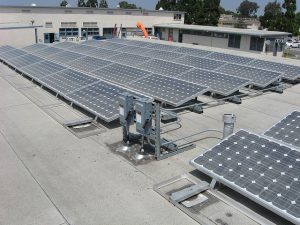 Jordan may be dealing with an energy crisis exacerbated by attacks on the Sinai Peninsula gas pipeline – but now is not the time for rash decisions
Jordan may be dealing with an energy crisis exacerbated by attacks on the Sinai Peninsula gas pipeline – but now is not the time for rash decisions
Over the last of couple of months, voices highlighting the threat of an energy crisis in Jordan are getting louder. The situation is desperately alarming they say and whilst they’re right to be concerned about the country’s heavy energy dependency – their calls to embrace shale oil and nuclear power are shortsighted.
Following the huge disruptions and attacks on pipelines carrying gas from Egypt to Jordan, there have been growing concerns about Jordan’s energy situation. The energy-poor country relies heavily on imports and depends on Egypt for 90% of its gas, which is used to generate more than 80% of its power. The impacts of the disruptions have also not come cheap. Some estimate it has cost the country over US$1 billion to deal with energy gap and that was back in October so the amount is bound to have increased.
Jordan clearly needs an energy solution. But rather than jumping to shortsighted solutions such as exploiting their shale oil reserves or nuclear power, they country needs to think long term and start building a renewable energy infrastructure. Energy experts in the region have been urging Arab nations to embrace the high potential of solar energy and environmentalists continue to call for an open and public debate on energy developments and particularly nuclear plans.
Talking to the Jordan Times, environmental campaigner Sufyan Tell said: “The entire world is running away from nuclear energy: Germany, Italy, Sweden and Japan are not only suspending their nuclear programmes but laying legal framework to prevent the construction of future reactors. Why are we in Jordan running towards nuclear without dialogue?”
Campaigners have urged the Jordanian government to abandon their nuclear plans and channel their investment into increasing the country’s renewable energy instead. Current targets set the contribution of renewables to the energy mix at just 10 percent by 2020. In contrast, there are plans to produce 14% of their energy mix from oil shale by 2020.
Whilst protests against nuclear power have highlighted environmental problems as well as concerns over costs and safety, campaigners have been relatively silent about the similar environmental concerns of exploiting shale oil. As I noted in a previous post, shale oil is expensive, energy intensive and damaging to the environment- it has also been linked to water pollution and water shortages. Therefore, an open and honest debate about Jordan’s energy plans and their environmental impacts as well as renewables alternatives is desperately needed.
:Image via Paala/flickr.
For more on energy developments in Jordan see:
Energy Experts Tell Arab World ‘Solar is the Future’
Jordan Jumps Forward on Energy Development
Greenwash Alert: Shell To Fund Environmental Education in Jordan
Can Nuclear Power Ever Be Justified For Environmental Reasons?




Advancement of no energy alternative has been without its hazards and impacts. Hydrocarbon development today is far different from what it was in 1970, the year of the first Earth Day, when I chose geology as my career path. I chose it because both assuring the availability of resources and ensuring their sustainable development (a phrase not yet created then) looked like a satisfying lifelong career. And it has been. Without active participation of a population, and governments that truly intend to balance these twin goals, regulatory regimes will fail. And no system avoids unforeseen impacts entirely. I hear earnest commitment on the part of those in Jordan charged with this task. Whether it will be realized or not is unclear.
As to the cost of oil shale development, I was speaking diplomatically. Only when we properly consider the full cost of all resources do the renewable come close to traditional energy sources. We should be doing this full cost evaluation, but then we should recognize that most energy sources will be more closely comparable, and the choices will get very challenging.
There are a lot of cars on the road in Amman, and I don’t see any evidence of a biofuels industry, or any electric cars (not even hybrids). So, given that many people cannot walk to their place of work, fuel will be required, and it will not soon come from wind and solar.
I would like to live to see the day when renewable energy resources provide the majority of energy requirements, but I expect to have to live another 30-40 years, perhaps longer to see it. I understand there is an Arab proverb that says that if you expect to live to see the solution in your lifetime, you have not taken on a big enough challenge. The transition to a sustainable future does not suffer from this problem.
@batir – you are so right and so funny. I do however think that there are serious issues with shale oil which aren’t currently being discussed in Jordan in the way that the dangers of nuclear power are…
Arwa
@Serious readers; the solution must be diversified and realistic. Natural gas dependence on Egypt can be compensated by importing gas from other countries as well. Solar and renewables can count to 15% of total demand by the best measures and energy effeciency efforts must be adopted with public committment. Of course this is easier said than done.
@JTR, well Jordan imports 96% of its energy sources and that translates to 20% of GDP. So, it has a problem with the magnitude of 96% and if we want to implement your suggestion we can work together to think of a genocidal plan to reduce population. Ironically this can be done with a badly managed nuclear reactor.
@Jerem Boak: If, as you say shale oil “is no more expensive” than renewables, than you’ll have to excuse me for saying that I would rather go for a source of energy that isn’t going to irreparably blight the environment or run out and bring us back to square one (after making some people very rich, of course).
As to shale oil generating vehicle fuel- I can’t say its a priority neither is “advancing all energy sources”. I think we’ve all learnt that our hydrocarbon advancement haven’t been an entirely ‘good’ thing’.
Finally, my experience of environmental regulation in the Middle East is basically there isn’t any. So any reassurance that “developers should be expected to show that the effects on Jordan’s precious water resources will not be damaging” ring a little hollow.
Arwa
@JTR: I think that your belief that population control is key to resolving climate change is misguided. It’s widely accepted now that the reality is the huge level of consumption (mainly in the Western world) is the real issue and if we control population control without cutting consumption that we would still have a big problem on our hands.
Secondly, the reason that many people in the developing world have large families is because they are a form of social security for old age, illness, lack of employment…. Therefore, until there are alternative ways of ensuring that you are well looked after, all the family education in the world isn’t going to change anything.
btw I do agree that family education is a good thing and that we should deal with population but the reality is that large population doesn’t automatically mean energy problem… and small population consuming lots definitely will.
Jordan does not have an energy problem. It has a population problem like most other nations of the World. If people everywhere could agree to peacefully reduce their population with family planning education, and safely recycle 100% of all human generated waste products, there would be plenty of resources for everyone.
Production of oil from oil shale can be economic given the current and likely future oil prices. It is certainly no more expensive than many renewable energy resources, and few of those generate vehicle fuel, as oil shale can. The environmental impacts of oil shale devleopment can certainly be mitigated. They are not unusual or beyond the experience of developers of natural resources worldwide. The Jordanian government has said that environmental impacts must be considered in the development of oil shale. Certainly any developer should be expected to show that the effects on Jordan’s precious water resources will not be damaging, but the regulatory regime that Jordan has presented is capable of avoiding undue impact. Those in Jordan planning to develop and those charged with regulating that development are, in my experience, dedicated, thoughtful people, who believe this resource can help Jordan. Oil shale can be an important and economical resource that fits into a diverse energy supply. Jordan should not see the issue as either or, but as one of achieving advances in all energy sources.
Jeremy Boak, Director
Center for Oil Shale Technology and Research
Colorado School of Mines
Golden CO USA
Viewpoints expressed are mine and not positions of the Colorado School of Mines